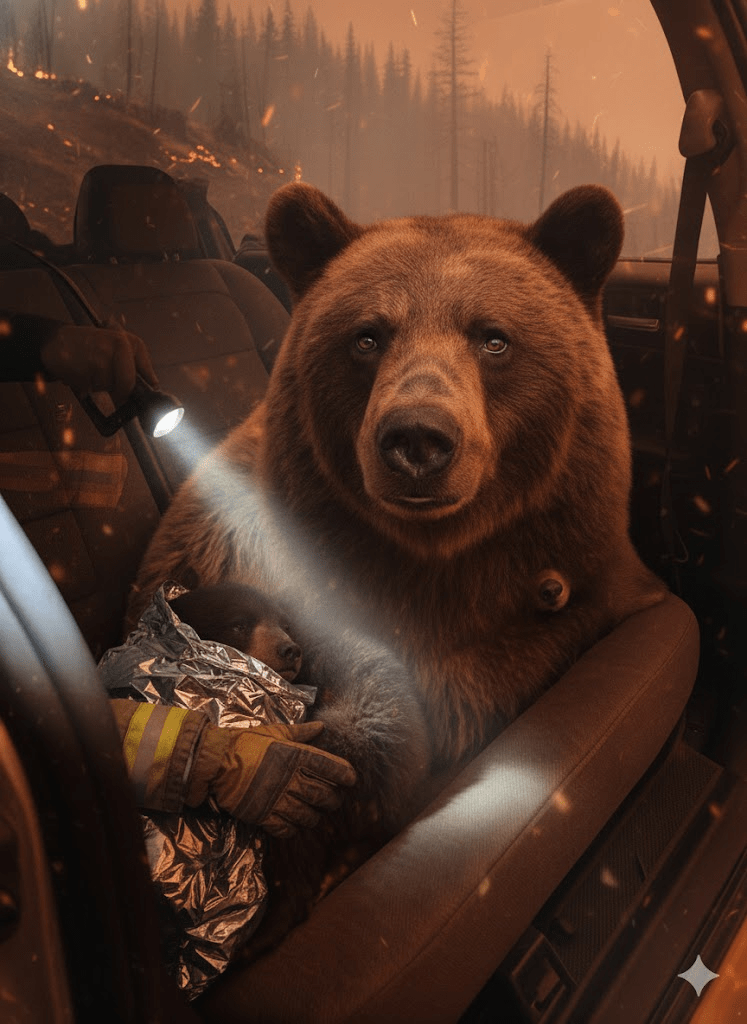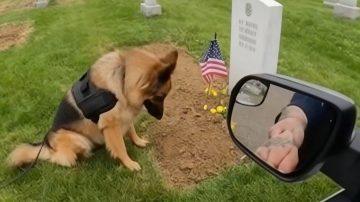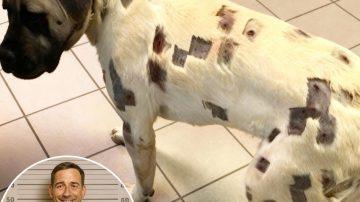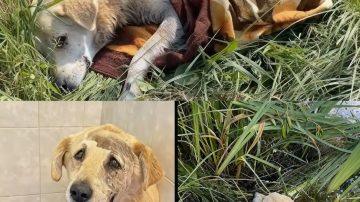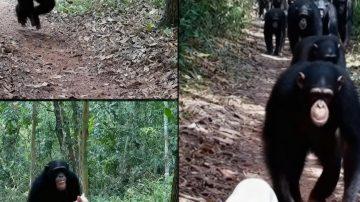The inferno that swept through the Los Angeles hills was a canvas of devastation, painting landscapes with hues of char and ash. Amidst the chaos, amidst the desperate fight against nature’s wrath, a tale of extraordinary devotion began to unfold, challenging every expectation held by the seasoned firefighters and law enforcement battling the blaze. It wasn’t the usual narrative of escape and survival, but a poignant testament to a love so profound it transcended the instinct for self-preservation. This remarkable event, initially just another tragic loss in a season of calamities, would ultimately touch millions, reminding us that the most powerful emotions often reside in the most unexpected places.
A police officer, navigating a desolate, smoke-choked road where homes once stood, stumbled upon a sight that momentarily silenced the crackling inferno. Inside what remained of a scorched vehicle, a large, adult bear lay, her fur singed, her body visibly trembling, yet her stance unyielding. But it wasn’t just her presence that was shocking; nestled close, protected by her body, were two small cubs. One appeared lifeless, the other stirring faintly. The mother had not fled the advancing flames. She had stayed, a silent sentinel, guarding her babies even as the world around her turned to ash. Her decision to face the fire, to remain with her young, spoke volumes about a bond deeper than any human could articulate.
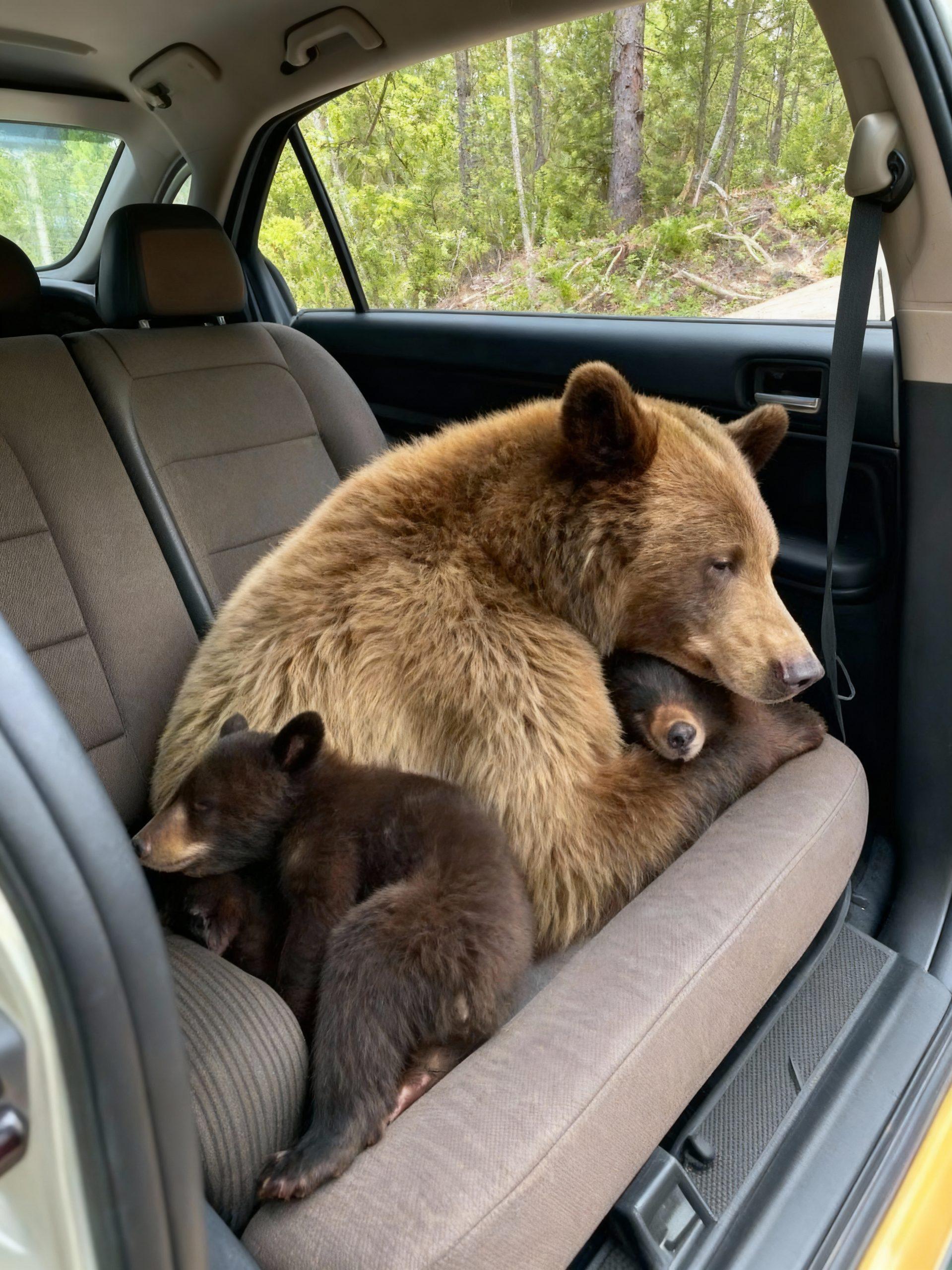
The arrival of a specialized wildlife rescue team added another layer of urgency and complexity. The mother bear, despite her injuries and exhaustion, remained fiercely protective. Her eyes, filled with an raw, almost human-like anguish, followed every movement as the team carefully, painstakingly, worked to extricate the lifeless cub and assess the condition of the fragile survivor. It was a dance of caution and compassion, with the rescuers understanding that any sudden move could provoke a defensive charge from the grieving mother. The scene was thick with smoke, the air heavy with the smell of burnt timber and the unspoken weight of a mother’s profound sorrow.
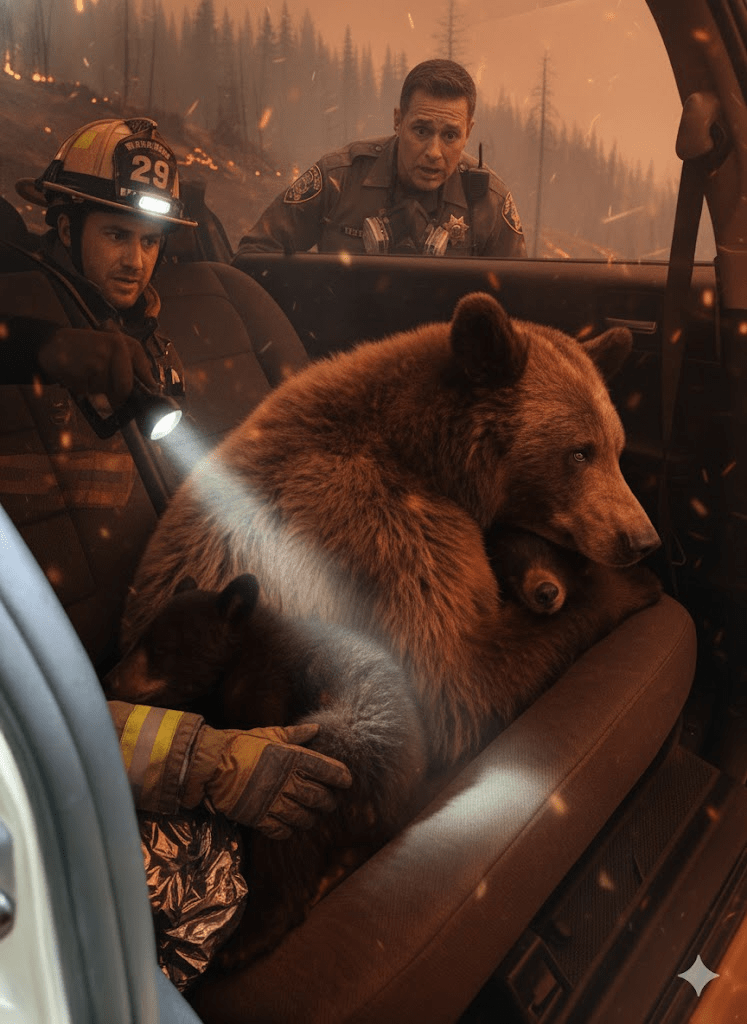
“She just wanted to make sure we still had her baby,” one firefighter whispered, his voice thick with emotion, as the mother bear’s gaze fixated on the tiny, inert form being gently lifted. This observation, simple yet profound, encapsulated the depth of her maternal instinct. It was a stark reminder that even in the wild, stripped bare by disaster, the emotional landscape of a mother’s love remains constant. The surviving cub, weakened but breathing, was a glimmer of hope amidst the heartbreak, an unexpected twist in a narrative that seemed destined for complete tragedy.
